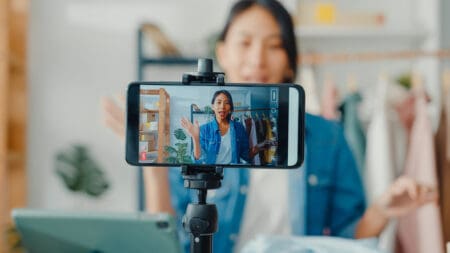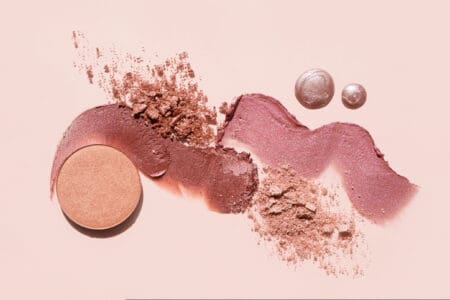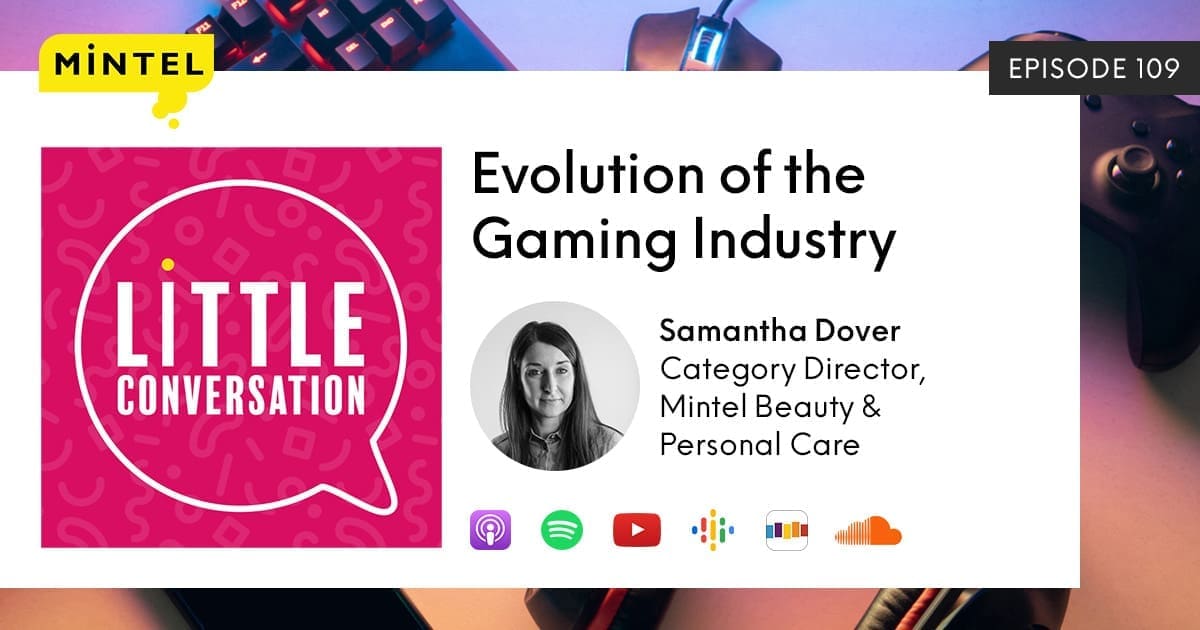Influencer marketing is still a relatively new industry, but it is growing rapidly. In the UK, Mintel forecasts that BPC’s market worth will reach over £10 billion in 2027, and influencer marketing is poised to play an increasingly important role in this market. As influencer marketing continues to grow, it is likely to become an even more effective way for BPC brands to reach and engage consumers.
In this article, we’ll delve into the various trends and strategies utilised by influencers and brands on social media in the BPC industry. We will also discuss how influencer marketing is anticipated to significantly shape the future landscape of the beauty and personal care industry.
Want to find out more about online influencer marketing? Read Part 1 from our Influencer Marketing series and unpack The Impact of Influencer Marketing on Consumers’ Purchasing Journey. Uncover how brands are leveraging social media personalities to foster connections, enhance brand awareness, and boost business growth!
What is Influencer Marketing?
Influencer marketing is a type of marketing strategy that involves a collaboration between influencers and brands to promote brands’ products or services. Influencers are individuals who typically have a large following on social media. They are able to reach and engage with a large audience, are often considered experts in their niche industry, and have a significant impact on their audience’s purchasing decisions.
Rising Inflation has Supported the Rise of Influencer Marketing
Rising inflation has propelled influencer marketing into a prime position within the BPC industry. As economic uncertainties and global conflicts tighten consumer spending, the demand for credible pre-purchase research in the BPC market has surged, which influencer marketing effectively caters to. Additionally, many companies are scaling back on their advertising budgets and media spending, making influencer marketing even more attractive as a cheaper alternative.
Inflation will intensify pre-purchase research in the beauty industry
Social media and beauty influencer reviews are persuasive and instrumental within the BPC path to purchase, particularly due to rising costs and the overwhelming abundance of products available in the market. Over one-third of Americans who follow beauty influencers look at reviews or recommendations from them before buying a new product, and a substantial three-fifths of UK consumers believe that the social media personality they follow is an expert on the topic they cover.
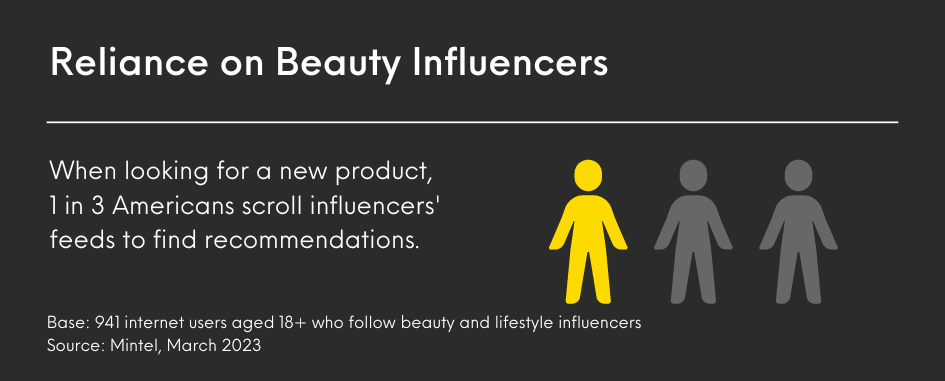
Considering that the BPC industry is threatened by the lack of trust in beauty and grooming advice, and the heightened value-consciousness of consumers, brands have an opportunity to be transparent and partner with credible beauty influencers to provide genuine product reviews. In the US, brands are partnering with beauty “experts” to bring credibility to their claims. For instance, Olay partnered with dermatologists and TikTok influencers Dr Alexis Stephens and Dr Daniel Sugai who discussed the quality and results of skincare products. Dr Stephens and Sugai’s curated product bundles which were then available to purchase on Olay’s website. This strategy taps into the authority and large audiences that social media personalities have in the beauty space.
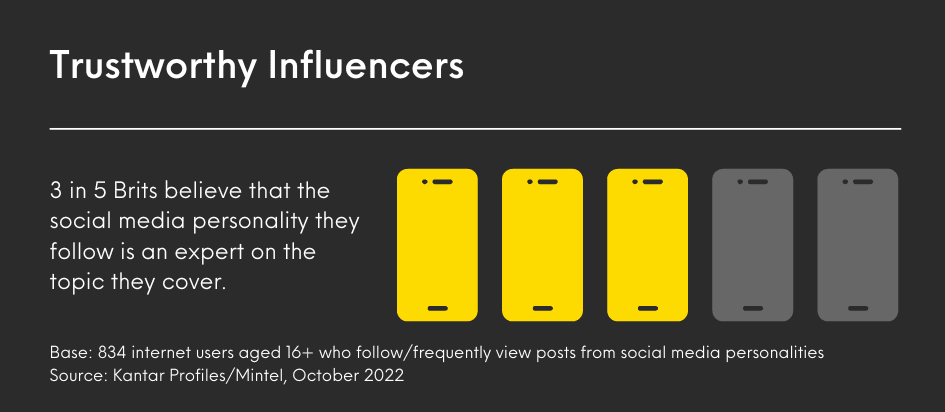
Brands and retailers can further enhance their trustworthiness by showcasing both negative and positive reviews which is constructive as it empowers the consumer to gauge the reliability of product claims independently. Influencers and beauty educators can provide valuable guidance and reassurance to value-conscious consumers, making them ideal partners for BPC brands looking to restore consumer confidence and navigate this challenging economic landscape.
Inflation will also emphasise the need for pre-purchase research in the prestige beauty sector. Mintel’s insights revealed that the prestige sector outperformed, particularly in categories such as colour cosmetics and fragrance. This suggests that despite a challenging economic climate, consumers are still willing to treat themselves to affordable luxuries. However, these consumers are keen to get the best price when doing so, therefore intensifying pre-purchase research behaviours.
16% of beauty buyers who use social media are also turning to beauty influencers’ advice to find cheaper alternatives to premium products. These behaviours are particularly prevalent amongst respondents aged 16-24. Whilst this creates an opportunity for brands and retailers playing in the ‘dupe’ space to highlight new launches across socials, it places pressure on premium brands to justify a higher price point. As consumers are financially stretched, they will want to ensure the money they spend is worthwhile, and services that recommend value alternatives to prestige products will be appreciated.
Beauty Influencers and Social Media’s Role in Product Discovery
Beauty influencers and social media play a significant role in product discovery in the beauty and personal care industry. Research by Mintel’s experts indicates that 1 in 5 consumers use social media to discover and learn about new beauty brands and products, rising to 2 in 5 of women aged 16-24, underscoring the importance of calling out NPD on social media to facilitate discovery. An example of a brand that successfully capitalised on this trend is Youthforia and the launch of its Date Night Foundation in 2023. By leveraging its social media channels and infusing humour into its messaging, Youthforia highlighted the new unique feature of the product -allowing it to be worn overnight without damaging the skin- and boosted their brand awareness.
In terms of BPC influencers playing a part in product discovery, trends such as #GRWM (get ready with me) continue to circulate after experiencing immense popularity in 2023. This trend outlines the opportunity for brands to gift beauty educators with new product samples which can aid the exposure of the product to a wide and diverse audience, and can potentially get the product to go viral. These #GWRM videos also enable the audience to see how the product should be applied and see the final results, which in turn creates authentic and relatable content -compared to traditional marketing- that resonates with their target audience.
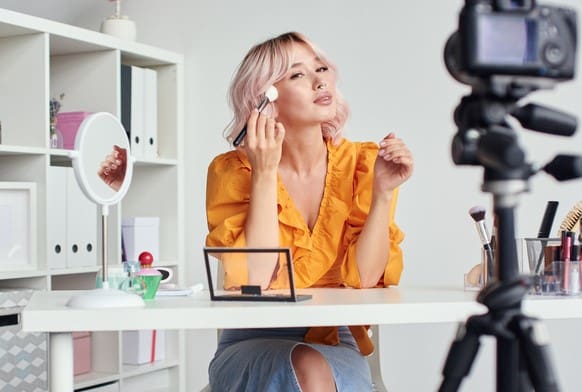
As many influencer marketing agreements are based on affiliate commission, social media personalities play a pivotal role in circulating promotional codes to encourage purchases for products they advertise, with one in five Germans using a discount code when a brand partners with an influencer. This tactic demonstrates that discount codes are a common and effective tool in promoting brand engagement, in addition to tracking the direct effectiveness of BPC influencer promotions.
DEI and the BPC Industry: Beauty Influencers and Social Media’s Supporting Role
In the ever-evolving landscape of the beauty and personal care industry, consumer behaviours are constantly reshaping the industry, particularly when it comes to DEI (diversity, equality and inclusion) representation. The significance of purchasing products promoted through inclusive advertising and researching the diversity status of beauty and grooming brands is a prevailing trend in the BPC space. This indicates the importance of ensuring that brands’ social media and influencer content is diverse and inclusive.
Recognising the importance of catering to diverse demographics, the industry is teaming up with beauty educators who reflect varied identities and can generate engaging content for multicultural consumers. Notably, 59% of black US consumers and 58% of Hispanic US consumers follow BPC influencers with their specific skin tone or type for product recommendations on social media. Fenty Beauty serves as a noteworthy example, they provide an extensive array of foundation shades and a virtual shade finder, something which they promote on their Instagram page using social media personalities. For ethnic minorities (excluding white minorities), these immersive experiences like virtual try-ons or skincare diagnostic tools hold even greater appeal. Therefore, brands must prioritise inclusivity and advertise tools catering to all skin tones and types to truly win over diverse audiences.
The influence of social media personalities in shaping perceptions and fostering a sense of inclusivity cannot be overstated. A significant 16% of beauty and grooming buyers who use social media admit to feeling self-conscious about their appearance, with this number rising to 29% among those aged 16-24. This highlights a unique opportunity for beauty educators and online influencers to help combat insecurities and promote positive body image on social media. Thankfully, 2023 has seen encouraging steps towards a more inclusive and realistic online beauty landscape. Initiatives like Cult Beauty’s ban on retouching in advertising and brands like Estrid consistently featuring a diverse array of models in social media content are helping to dismantle unrealistic beauty standards and installing trust among consumers.
These efforts are crucial in addressing the widespread insecurity many people face due to the often heavily edited content on social media. By sharing relatable experiences and unfiltered images, BPC influencers can emerge as powerful allies to help reshape norms, promote self-acceptance and amplify voices that were once marginalised.
Blending the Real and Virtual: How Beauty Brands are Embracing Technology
Over half of consumers who follow social media personalities are interested in viewing virtual reality content from them. Mintel forecasts that this surge in interest in virtual reality (VR) and artificial intelligence (AI) will redefine how beauty and grooming brands engage with consumers. In 2021, Prada shifted the focus away from the traditional influencer to support the launch of its fragrance by promoting it with a virtual model, named Candy. This computer-generated avatar was carefully crafted to embody Prada’s brand values cost-effectively. Following this trend, M&S also created a virtual influencer on Instagram using CGI and AR in 2022. Mintel anticipates that VR and AI will fuel the development of even more dynamic virtual interactions, further blurring the lines between reality and digital spaces.
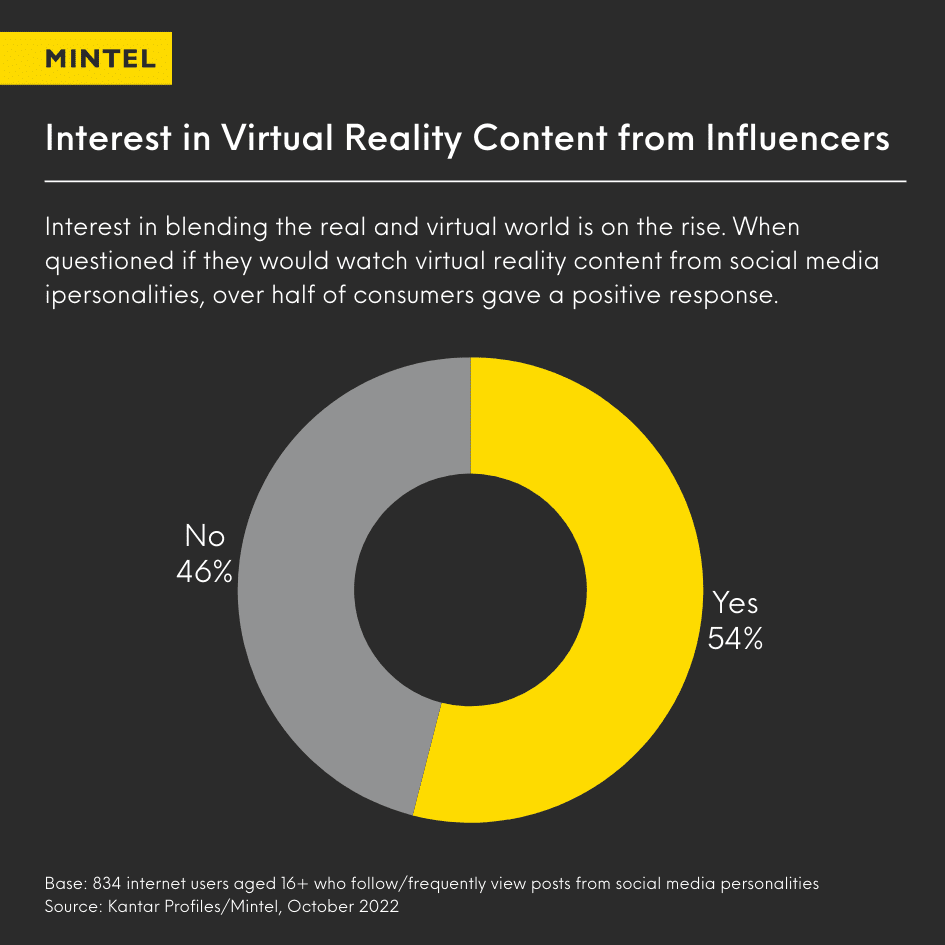
Looking Ahead with Mintel
The beauty industry recognises the transformative impact that social media and influencer marketing can have in the digital age. By working with reputable social media personalities to provide authentic and relatable content, brands can establish connections with consumers, facilitate product discovery and dismantle unrealistic beauty standards. Furthermore, the emergence of AI and VR presents beauty brands with the opportunity to capture the attention of tech-savvy consumers and expand the horizons of engagement.
Don’t let influencer marketing pass you by! Understand the Impact of Influencer Marketing on Consumers’ Purchasing Journey and enhance your own brand awareness today by reading Part 1 in our Online Influencer Marketing Series.













